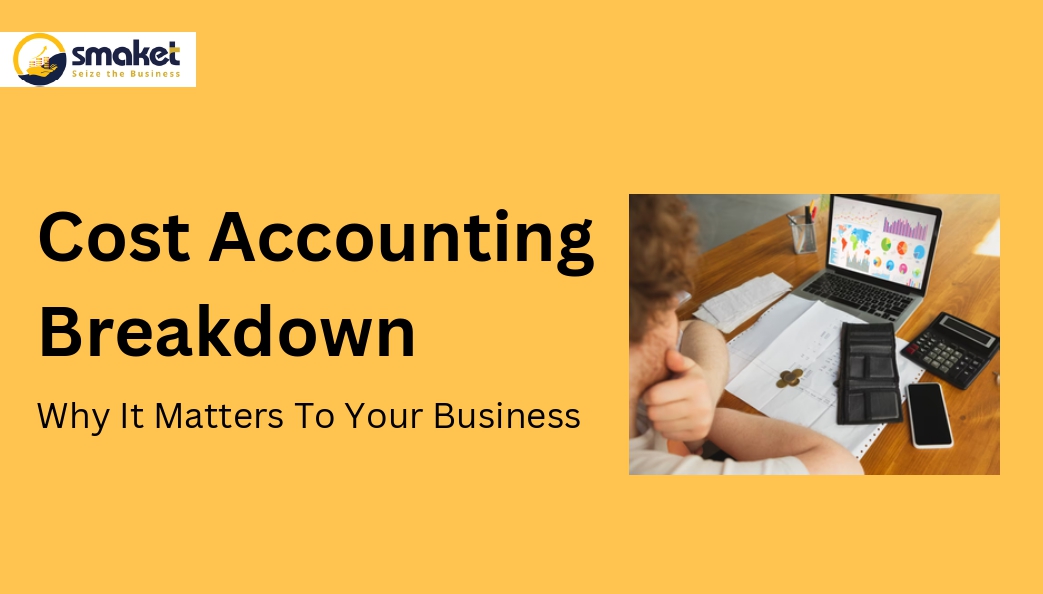Cost accounting is an accounting discipline concerned with the recording, analysis, and reporting of a company’s costs. For businesses to manage their plutocrat and make informed opinions, it’s a pivotal tool. We will examine the significance of cost accounts and its benefits in this blog post.
What’s the cost account?
A cost account comprises the methodical recording and analysis of all costs associated with a company’s operations. It includes both direct costs, like labour and supplies and indirect expenditures, like rent and utilities. Businesses can also enhance their profitability and financial health by carefully recording and analyzing these costs. The purpose of cost accounting is to assist organizations in understanding their costs and making educated pricing, budgeting, and resource allocation decisions.
Why is cost accounting important?
For a variety of reasons, cost accounting is critical for firms. The following are some of the primary benefits of cost accounting:
Helps businesses make informed decisions:
Businesses can make informed pricing, budgeting, and resource allocation decisions thanks to the accurate cost data that cost accounting also gives them. For example, if a business is apprehensive of the cost of producing a product, it may also determine a fair selling price to ensure a profit.
Identifies areas of cost savings:
Businesses can identify areas where they can reduce costs and save money by precisely examining their charges. For example, a company might hunt for a less precious resource if it discovers that it’s spending too much on a certain material. Businesses can also successfully reduce their costs and increase their revenue by implementing this solution.
Enables businesses to set a budget:
Cost accounting aids organizations in creating budgets by providing accurate information regarding costs. Businesses may build reasonable budgets that enable them to deploy resources efficiently by being aware of their costs.
Helps businesses evaluate performance:
By comparing actual expenses to anticipated costs, cost accounting enables firms to assess their performance. This can assist companies in identifying areas for improvement and modifying their operations accordingly.
Decision-Making Facility:
By furnishing precious information, the cost account empowers businesses to make well-informed opinions. This includes opinions about pricing, budgeting, and resource allocation. By having accurate information about their costs, businesses can make opinions that will help them achieve their pretensions.
Types of Cost Accounting:
There are several types of cost accounts that businesses can use.
job costing:
For one-of-a-kind or customized tasks, job costing is employed. This entails keeping track of expenses including materials, labour, and also overhead related to a particular job or project.
process costing:
For equal or comparable items, process costing is employed. Expenses like supplies, labor, and overhead are accounted for during each stage of the production process.
activity based Costing:
Activity-based costing distributes costs according to the activities that generate them. This also entails defining the processes that go into a good or service and putting a price on them.
standard cost:
A different way to say this is: Standard costing entails determining upfront costs for overhead, labour, and supplies. By comparing actual expenses to budgeted expenditures, it helps determine areas for cost savings.
Conclusion:
In the end, cost accounting is a vital tool for companies to manage their finances and also make wise choices. Businesses can plan budgets, find areas where they can cut expenses, and assess performance thanks to the reliable cost information it offers. Businesses can also use cost accounting to help them make decisions that will help them reach their objectives and boost earnings.
Faq:
1. How are cost accounting and financial accounting different?
Financial accounting concentrates on producing financial statements that reflect a company’s financial success, while cost accounting concentrates on tracking and analyzing a company’s costs and expenses. Financial accounting gives outward information to stakeholders like investors, creditors, and regulators whereas cost accounting provides internal information for decision-making
2. What are a few standard cost accounting techniques?
Job costing, process costing, activity-based costing, and also standard costing are a few of the cost accounting techniques. The approach will vary depending on the kind of business and the goods or services it offers.
3. How can accounting aid in cost reduction for businesses?
Cost accounting assists firms in making financial savings by identifying areas where costs can be cut. Businesses can discover areas where they are paying more by analyzing their costs, and they can also search for ways to reduce costs by locating more affordable suppliers or employing more effective manufacturing techniques.
4. How can cost accounting assist organizations in making decisions?
Businesses may allocate resources more wisely and set fair prices when they have reliable information about their costs thanks to cost accounting. Businesses can make decisions that will also enable them to accomplish their objectives and boost their profitability by having a thorough awareness of their costs.
5. Can Cost Accounting Help Small Businesses?
Yes, cost accounting can help smaller companies just as much as it can help bigger ones. Small firms can allocate resources more wisely and set fair prices by analyzing their costs. This can also assist them in increasing their profitability and long-term business growth.

